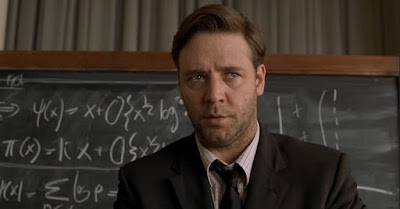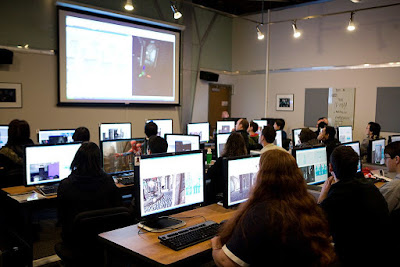There's no doubt about it, mathematics is a very important skill. It's a skill that you will use throughout your entire life whether it's for checking your expenditure and change, doing quotations for work or simply measuring up the garden in order to buy supplies for home. Math is critical.
The media would have us believe that mathematics is an automatic "savant skill" for people with autism and that kids with autism, even non-verbal ones, are all capable of amazing feats of mathematics. If only this were true. Unfortunately, this is yet another area where autistic people are just the same as everyone else. Some people are very good at math but most are not.
If you already understand the theory then doing a lot of problems will usually do wonders to improve your speed and accuracy. What it won't do is help to improve answers to text-based questions or teach you to use mathematics to solve real-world problems.
One thing that often works well for kids with autism is to help them to see patterns in math.
Math is full of amazing patterns and helping your kids spot them throughout their times tables and basic addition and subtraction will make a world of difference in the formative years.
9 x 9 = 18 and 7 x 8 = 65
At first glance, I'd say he's adding the two nines but then as I'd progress through his paper, I often realised that he had all the right answers but his numbers were completely the wrong way round. Unfortunately, I could never convince his math teacher at the time that this was the issue.
Getting him to start showing his working made a bit of a difference and his later teachers began to see the issue.
I can remember my parents saying "you won't always have a calculator handy", as a way of excusing the need for math in the head. Well, that was then, this is now. Everyone has a calculator built into their smartphone today and even if you don't, there'll always be someone around with one in the event that complex math is required.
In any case, we never stop learning and simple maths abilities will continue to grow with use throughout their lives. Just because your kids are using a calculator for everything now, it doesn't mean that they'll continue to do so for the rest of their lives.
If having a calculator will give your teen less stress and more time to concentrate on mathematics theory, then it's definitely worth a shot.
For example, many math problems are in the form of;
Johnny has five green marbles and four blue ones. He loses one while playing and his friend Sue gives him two more green ones. One day he finds another three blue ones. He now has seven green and six blue ones. What colour was the marble that he lost.
Some kids on the spectrum find it difficult to visualise these stories and the best way to help them to learn is to get them to draw them out.
Unfortunately, drawing takes a lot of extra time particularly during exams, so if drawing is helping, you'll need to approach your child's teachers and see if your child can get extra time in exams.
Kids on the autism spectrum are particularly sensitive to change, so be sure to talk to your teen if you find a sudden issue.
Ask them what they think of their teachers, about the room, distractions, their friends etc. Also, keep a look out for disturbing electronic devices. Many schools are moving onto computers and tablets which can easily be switched to instant messaging or games.
Kids on the autism spectrum can sometimes have difficulty staying on task and sometimes this new technology is a little too distracting for them.
Wherever you teen fits on the spectrum, if they're struggling with mathematics, consider approaching the issue differently. Perhaps a change is needed. You'll also find that sometimes you'll get better results if you change the teacher, or perhaps engage a tutor.
Remember: In a class of 24 students with 5 hours of math per week, your teen will be receiving, at most, 13 minutes of one-on-one attention. A single tutor session can provide 30-60 minute of quality time. It's worth it.
The media would have us believe that mathematics is an automatic "savant skill" for people with autism and that kids with autism, even non-verbal ones, are all capable of amazing feats of mathematics. If only this were true. Unfortunately, this is yet another area where autistic people are just the same as everyone else. Some people are very good at math but most are not.
 |
| Russell Crowe in "A Beautiful Mind" - A great film but not one that helps the wrong perception of Savant skills |
Sometimes it's all about practice
Math teachers often suggest that the best way to learn mathematics is to keep doing math problems over and over. There's certainly some truth in this approach.If you already understand the theory then doing a lot of problems will usually do wonders to improve your speed and accuracy. What it won't do is help to improve answers to text-based questions or teach you to use mathematics to solve real-world problems.
One thing that often works well for kids with autism is to help them to see patterns in math.
Math is full of amazing patterns and helping your kids spot them throughout their times tables and basic addition and subtraction will make a world of difference in the formative years.
Sometimes it's all about the theory
Some teens struggle with numbers and this is particularly true for kids with dyslexia or dyslexic leanings. Years ago, my son used to bring home math papers with big zeroes on them. I'd look at his answers and they'd be things like;9 x 9 = 18 and 7 x 8 = 65
At first glance, I'd say he's adding the two nines but then as I'd progress through his paper, I often realised that he had all the right answers but his numbers were completely the wrong way round. Unfortunately, I could never convince his math teacher at the time that this was the issue.
Getting him to start showing his working made a bit of a difference and his later teachers began to see the issue.
Calculators aren't evil
If your teen is struggling with math and performs better with a calculator then it's worthwhile allowing them to use one rather than trying to force them to do without. It's far more important that they know how to solve a problem than it is to be able to do the math in your head.I can remember my parents saying "you won't always have a calculator handy", as a way of excusing the need for math in the head. Well, that was then, this is now. Everyone has a calculator built into their smartphone today and even if you don't, there'll always be someone around with one in the event that complex math is required.
 |
If having a calculator will give your teen less stress and more time to concentrate on mathematics theory, then it's definitely worth a shot.
Sometimes it's not about the numbers at all
Sometimes mathematics isn't about numbers or even theory. Sometimes it's as simple as kids who find it hard to parse words into a sentence or to visualise a scenario.For example, many math problems are in the form of;
Johnny has five green marbles and four blue ones. He loses one while playing and his friend Sue gives him two more green ones. One day he finds another three blue ones. He now has seven green and six blue ones. What colour was the marble that he lost.
Some kids on the spectrum find it difficult to visualise these stories and the best way to help them to learn is to get them to draw them out.
Unfortunately, drawing takes a lot of extra time particularly during exams, so if drawing is helping, you'll need to approach your child's teachers and see if your child can get extra time in exams.
Sometimes the issues are social
Sometimes, you'll have a teen who is very good at math but who suddenly begins to slip behind. This can happen when the work has gotten more difficult but sometimes it can be due to social issues, such as a change of teacher, issues with classmates or changes at home or in their environment.Kids on the autism spectrum are particularly sensitive to change, so be sure to talk to your teen if you find a sudden issue.
Ask them what they think of their teachers, about the room, distractions, their friends etc. Also, keep a look out for disturbing electronic devices. Many schools are moving onto computers and tablets which can easily be switched to instant messaging or games.
 |
| Technology can be distracting |
Even Savants have Problems
While I mentioned earlier that savants are rare, they do exist and surprisingly, they also have issues with math. It's not uncommon for a savant to jump directly to an answer without necessarily being able to explain how they got there. If your child is gifted, you'll still need to spent time teaching them how to show their working.Wherever you teen fits on the spectrum, if they're struggling with mathematics, consider approaching the issue differently. Perhaps a change is needed. You'll also find that sometimes you'll get better results if you change the teacher, or perhaps engage a tutor.
Remember: In a class of 24 students with 5 hours of math per week, your teen will be receiving, at most, 13 minutes of one-on-one attention. A single tutor session can provide 30-60 minute of quality time. It's worth it.
Comments
there's a point about the students receiving 13 minutes of one-to-one attention in your average Maths class
as contrasted with the tutors' 30-60 minutes.
I think of it as like vigorous exercise - 60-90 minutes a day or a week.